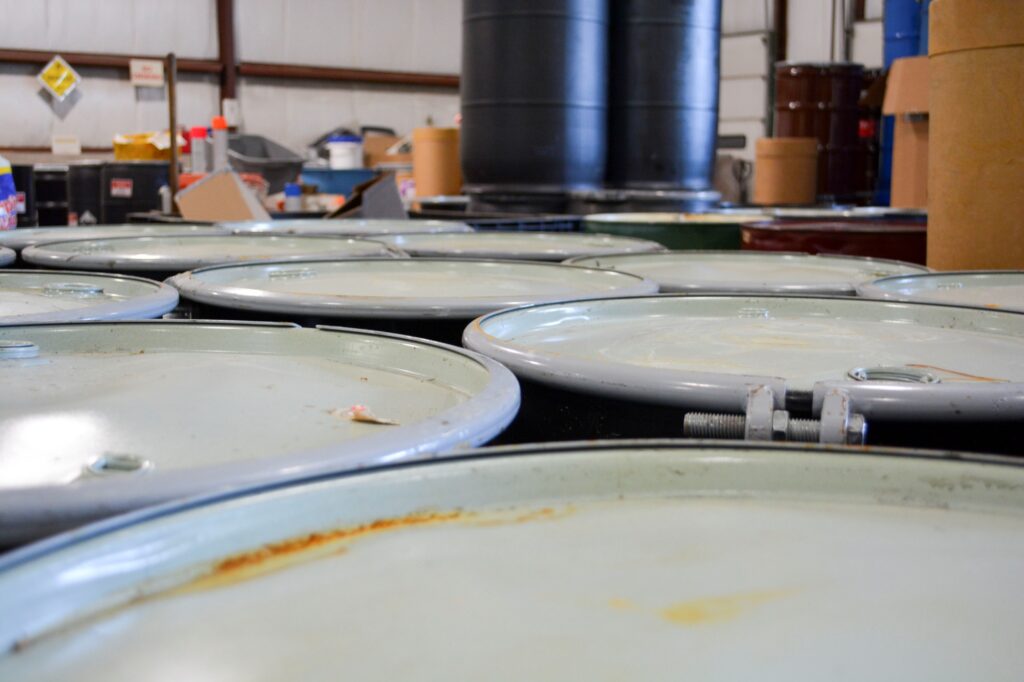Any business owner will tell you the sheer amount of waste their business generates, and that’s true for small businesses as well. When navigating the rules and regulations surrounding commercial waste, small businesses’ hazardous waste is no exception. As a business—even the smallest are held to different standards when it comes to storing, transporting, and disposing of these hazardous materials. Learn what common types of hazardous waste you may be generating.
1. Electronic Products (eWaste)
From personal computers to printers, batteries to specialized electronics, most businesses use some electronics, even if it’s just on the administration side of things. Due to heavy metals and hazardous chemicals, these products can’t be thrown in the trash. Useable electronics may be able to be donated, but others will need to be disposed of at designated facilities.
2. Paint, Stains & Thinner
If you’ve got a brick-and-mortar location, you’ve probably got paint lying around. Other businesses may have much more, depending on their services. While painters are a given for generating large amounts, many other companies can generate them, and all need to dispose of them. Learn more about paint & stain disposal and thinner & solvent disposal.
3. Cleaning Chemicals
Every business needs to keep its spaces clean for employees and customers, and for some, this means heavy-duty cleaning agents. Making sure these products are stored safely and appropriately used is essential to avoid dangerous combinations that can produce toxic gases. Many of these products can’t be disposed of down the drain or in the trash and must be disposed of properly.
4. Automotive Waste
From having a company car to servicing cars as a business, automotive waste is usually tainted with petroleum products and metals, making on-site disposal unacceptable. In our blog, Under the Hood: Dealing with Hazardous Waste from Cars, we outline the need for disposal and what your options are for things like used oil, automotive fluids, and even gasoline.
5. Laboratory Chemicals
Specialized chemicals for your business may also come with caveats for disposal. This can be everything from the obvious, such as mercury, to products used to treat water, develop photos, and perform landscape maintenance. If you’ve got significant amounts of chemicals, even old chemicals just taking up space on a shelf, it’s time to dispose of them.
Dealing with Hazardous Waste from Small Businesses
While small businesses don’t have the same options as residents, there are often state-led programs to deal with Very Small Quality Generators (VSQG), such as MA’s program, allowing them to transport their waste and use residential hazardous waste collection centers. NEDT is part of MassDEP’s VSQG Program, which helps small business owners (including at-home businesses) to dispose of hazardous waste safely and economically sustainablely.
Through our Small Business Quick Serv Program, NEDT Household Hazardous Products Collection Centers accept commercial hazardous waste from MA VSQGs that are registered with the Mass DEP and have a valid EPA ID number. Call NEDT at 1 (866) 769-1621 prior to delivering your materials, as important restrictions apply. Learn more about what we accept and where we are located. If you’re a larger quantity generator business, reach out to us on our commercial site.



Leave a Reply